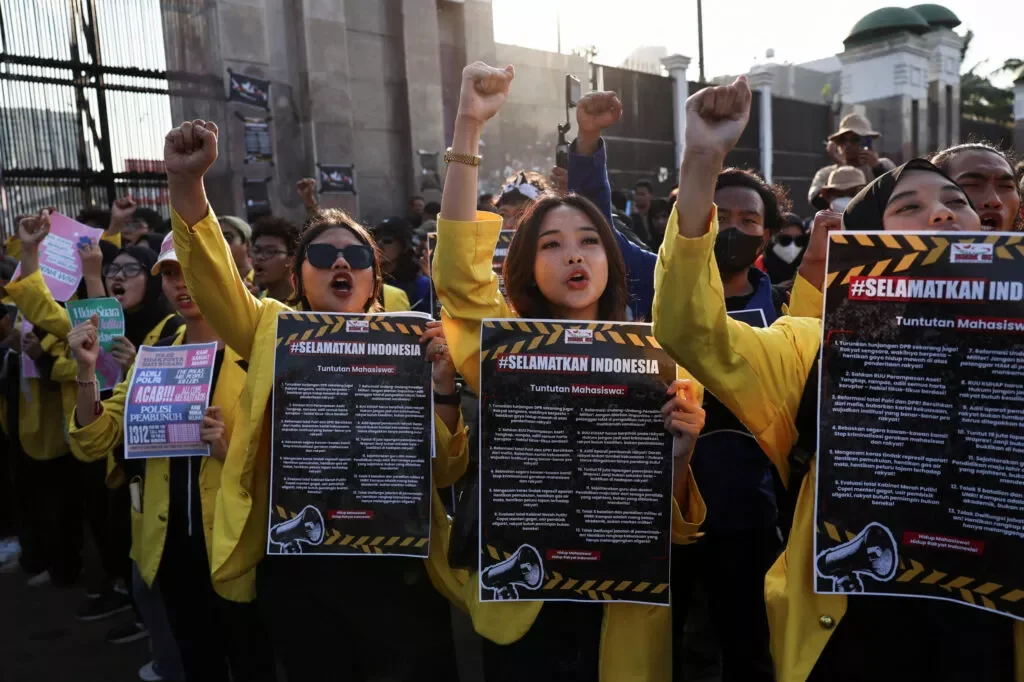Indonesia’s Protests Hit a Brick Wall of Elite Unity
University students during a protest outside the Indonesian Parliament building in Jakarta, Indonesia | REUTERS
In an article by East Asia Forum, Liam Gammon analyzes Indonesia's economic state under Prabowo’s policies, which radically restructured the national budget to favor his policy initiatives. The slowdown of Indonesia’s economy may have consequences not just for Prabowo’s popularity, but also for the foundations of the political model that has safeguarded Indonesia’s democratic stability
The eruption of protests across Indonesia from 25 August expressed pent-up anger at the greed and hubris of political elites, prompting comparisons with the 1998 mass mobilisation that helped end Suharto’s dictatorship. But this latest unrest — which saw at least ten fatalities, attacks on government buildings and ransacking of politicians’ private residences — was much more a product of the present-day confluence of dysfunctional democratic accountability mechanisms and a deepening economic malaise.
A key element of the democratic backsliding led by former president Joko Widodo was the reduction of Indonesia’s once-intractable national legislature to a rubber-stamp function. Widodo used a mix of patronage and legal coercion to gain leverage over party bosses and, by extension, their legislative caucuses.
The upshot was that the street became a key arena for civil society to contest the fruits of the legislative processes that they were increasingly frozen out of. Widodo’s presidency saw some of the biggest anti-government protests since the fall of Suharto. But thanks to his keen instinct for public sentiment and his close monitoring of opinion polls, Widodo was quicker to grasp than many of his critics that as long he kept his lower-class base happy on hip-pocket issues he could brush off attacks from progressive civil society.
Less than a year into his presidency, Prabowo Subianto is already more dominant over the elite than Widodo ever was, replicating his predecessor’s mix of patronage and coercion to enforce rigid discipline within his six-party governing coalition and to deter the two non-cabinet parties from mounting any meaningful opposition. Yet an increasingly palpable economic slowdown suggests the current wave of protests may be symptomatic of longer-term risks to Prabowo’s popularity — and potentially his dominance over other elites.

